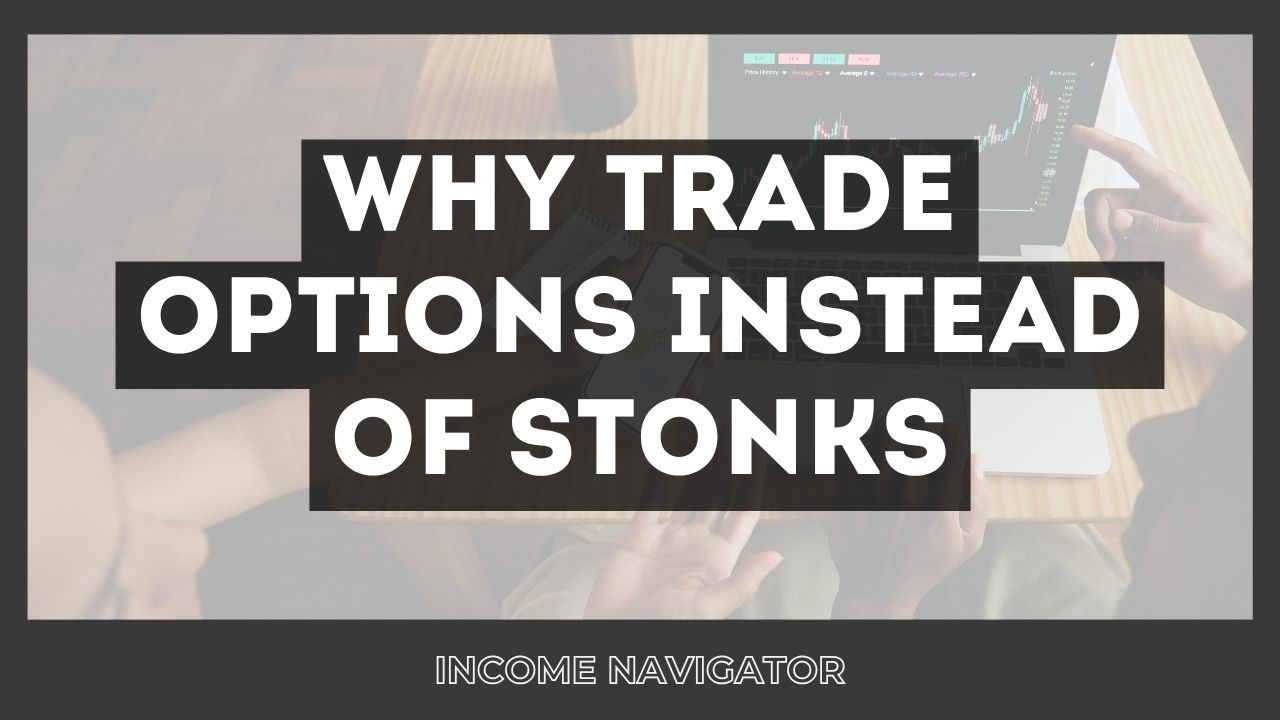Why Trade Options Instead of Stocks?

Let me be clear: I’m not anti-stock. I just know better.
If your strategy is limited to buying shares and hoping they go up, you’re playing the market on hard mode.
Stocks are basic — fine for getting started, but not nearly enough if your goal is consistent, sustainable income.
Here’s exactly why I trade options instead of stocks — and why, if you’re serious about building real income, you should too.
1. Stock Trades Are a One-Way Bet
Stock trades are simple — but too simple. You only make money in one direction. You either:
- Buy and hope it goes up, or
- Short and hope it goes down.
It’s binary. 50/50. And in a market that’s random by nature, that’s not a system — that’s a gamble.
2. Options Let Me Trade All Outcomes
This is the key: options give you multiple ways to profit. Direction is only one factor.
I build strategies that win if the stock stays flat, moves slightly, or even just doesn’t move too much.
I also profit from:
- Time decay
- Volatility changes
- Premium received
I don’t guess direction. I position around probabilities.
3. Stocks Lock Up Capital
Holding stock ties up a ton of capital. Sure, you can hold a losing stock for years until it maybe recovers, but that’s not a strategy — that’s just capital inefficiency.
With options, I use less capital to control more exposure.
That gives me flexibility, leverage, and room to manage risk more actively.
4. The Market Is Random. I Trade Accordingly.
Here’s what most people don’t want to admit: the market is random. Always has been.
Stocks follow a normal distribution — most of the action happens within one standard deviation.
Translation: stock trades are a 50/50 bet, no matter how confident you feel.
You might get lucky for a while, but over time, probability wins.
That’s why I use options — because they let me trade with the odds, not against them.
5. Options Give Me an Edge I Can Measure
With every trade I place, I know:
- The probability of profit
- The maximum gain
- The maximum loss
That level of control does not exist in stock trading. And if I can choose between a 50/50 guess or a 70%+ probability — I’ll take the edge every time.
6. Options Provide Smarter Leverage
Options let me do more with less. Yes, leverage cuts both ways — and overleveraging is how beginners blow up.
But when used right, options amplify opportunity while still capping risk.
I don’t need 100K to get exposure. I just need a defined, structured trade with a plan behind it.
7. Stocks Feel “Safe” — But That’s an Illusion
People stick with stocks because it feels familiar. But “familiar” isn’t the same as “safe.”
The top investment firms in the world — the ones that manage billions — have consistently overestimated returns by 100%+ for the last decade and a half.
So if they can’t get it right, what makes you think betting on stock direction gives you an edge?
Final Thoughts
Options aren’t magic. They don’t guarantee profits. But they give you something stock trading never will: a repeatable edge based on math and probabilities.
That’s why I trade options. Not to get rich quick. But to build income and manage risk with intention — every single time I enter a trade.
If you’re done guessing and ready to start thinking in probabilities, you’re in the right place.
Stick around — I’ll show you how it’s done.
— Igor
IncomeNavigator.com
Stay connected with news and updates!
Join our mailing list to receive the latest news and updates from our team.
Don't worry, your information will not be shared.
We hate SPAM. We will never sell your information, for any reason.

